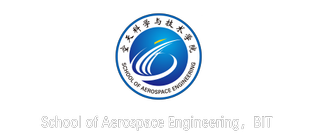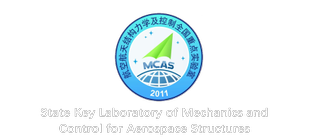On-orbit assembly of a team of flexible spacecraft using potential field based method
Ti Chen, Hao Wen, Haiyan Hu, Dongping Jin
Abstract: In this paper, a novel control strategy is developed based on artificial potential field for the on-orbit autonomous assembly of four flexible spacecraft without inter-member collision. Each flexible spacecraft is simplified as a hub-beam model with truncated beam modes in the floating frame of reference and the communication graph among the four spacecraft is assumed to be a ring topology. The four spacecraft are driven to a pre-assembly configuration first and then to the assembly configuration. In order to design the artificial potential field for the first step, each spacecraft is outlined by an ellipse and a virtual leader of circle is introduced. The potential field mainly depends on the attitude error between the flexible spacecraft and its neighbor, the radial Euclidian distance between the ellipse and the circle and the classical Euclidian distance between the centers of the ellipse and the circle. It can be demonstrated that there are no local minima for the potential function and the global minimum is zero. If the function is equal to zero, the solution is not a certain state, but a set. All the states in the set are corresponding to the desired configurations. The Lyapunov analysis guarantees that the four spacecraft asymptotically converge to the target configuration. Moreover, the other potential field is also included to avoid the inter-member collision. In the control design of the second step, only small modification is made for the controller in the first step. Finally, the successful application of the proposed control law to the assembly mission is verified by two case studies.
原文链接: https://www.sciencedirect.com/science/article/abs/pii/S0094576516302314





